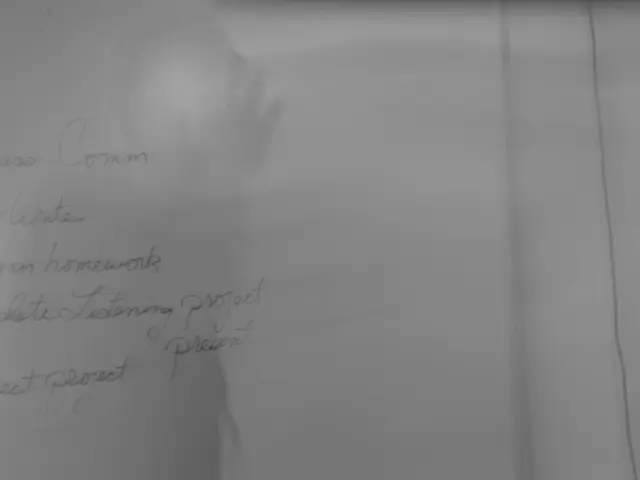Reduced Wind Turbine Permits in the North: Schleswig-Holstein Leads with Efficient Processes
Reduced wind turbine approvals in the Northern regions - Limitations imposed on wind turbine permissions in the northern region
emojis
The number of permits for wind energy ventures in Schleswig-Holstein's north has taken a dip. In 2024, the northernmost state issued permits for 204 new wind energy installations, compared to 241 installations in 2023, as announced by the Schleswig-Holstein Ministry of Environment at the Wind Energy Day in Husum [1]. The total capacity of these permits last year stood at 1.1 gigawatts.
At the same time, the state flaunts one of the swiftest permit procedures nationwide, with permits typically issued in 18 months - compared to the average 23 months across the country [1]. "This acceleration plays a significant role in the robust growth of wind power in Schleswig-Holstein," stated Energy Transition State Secretary Joschka Knuth (Greens), as he presented the data. In 2024, the state generated 27.3 terawatt hours of green electricity [1].
As of now, according to the Ministry of Environment, there are 348 wind energy installations with around 2 gigawatts of capacity in the permit approval process [1]. An additional 489 installations have been granted permits and are either under construction or in a state of readiness for commissioning [1]. The ministry foresees the northernmost state reaching its target of 45 terawatt hours of land-based power generation by 2030.
"Now it's essential to align with the new federal government to establish reliable guidelines for the continued success of the energy transition," emphasized Knuth [2]. He underscored the need for the federal government to "maintain course and avoid any remorseful decisions."
"Introducing temporary grid congestion areas that may impede the expansion of renewables is the wrong approach," Knuth insisted [2]. Instead, there should be a quick pace in grid expansion and local price signals, as well as a future-proof design for the Renewable Energy Act [2]. Knuth stressed the importance of "early planning security for the industry to continue investing."
"Wind energy forms the backbone of Germany's power supply," declared the president of the Federal Association of Wind Energy, Baerbel Heidebroek [2]. The industry intends to collaborate with the new federal government to ensure that expansion stays at a brisk pace - because wind energy provides an independent and cost-effective energy supply [2].
According to the Schleswig-Holstein Association for Renewable Energies, nearly 40% of Germany's wind power capacity originates from the northern federal states [2]. Despite the gains, the industry has grappled with overburdened permit authorities, bureaucracy, and grid incapacity in numerous states [2]. The permit processes in Schleswig-Holstein have evolved to be more streamlined and supportive of the state's position as a wind energy hub near the North Sea [1].
Source:
- REN21 (2020). Renewables 2020 Global Status Report - Wind. Retrieved from www.ren21.net/content/uploads/2020/06/Ren21-GS Report 2020- Wind.pdf
- GADEA (2021). Position Paper - Wind Energy in Northern Germany and At Sea. Retrieved from www.gadea- association.de/docs/Position_Paper_2021- DE.pdf
Keywords:- wind energy- permit- Schleswig-Holstein- BMU- Husum- gigawatt- federal government- energy transition- electricity
Further Insights:- The permit process for wind energy ventures in Schleswig-Holstein has progressed to facilitate an efficient and structured environment for the state to be a significant player in wind energy production near the North Sea [1]. The state emphasizes the importance of the permitting processes to secure its position as a hub for wind energy [2].
- The state government aims to maintain and expand its role in the wind energy sector, with a steady pipeline of permitted projects focused on increasing wind capacity and longevity for the market [1].
- The wind energy sector in Schleswig-Holstein is collaborating with the federal government and renewable energy associations to achieve ambitious wind expansion targets and strengthen the state's position in the European energy mix [2]. A streamlined and forward-looking approach to wind energy infrastructure is essential to maintain Germany's position as a global leader in renewable energy [1][2].
- The accelerated permit process in Schleswig-Holstein, fostering regional development, has significantly contributed to the robust growth of wind energy and positioned the state as a hub for environmental-science and industry.
- To sustain the growth and ensure the future of wind energy, Schleswig-Holstein advocates for a collaborative approach with the federal government, focusing on maintaining reliable guidelines, improving grid expansion, and providing finance for the development of the regions energy-transition.
- The wind energy sector, an essential part of Germany's energy supply, stresses the importance of effective science and finance to administer timely energy, contribute to the development of the regions, and maintain the country's leadership in environmental-science and industry.








